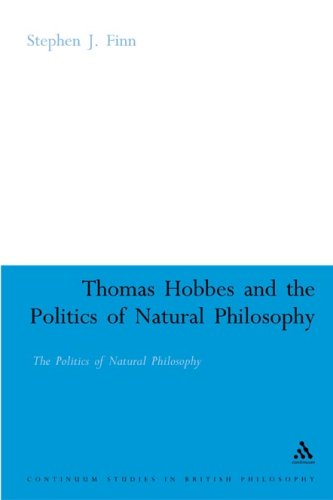Product desciption
Thomas Hobbes And The Politics Of Natural Philosophy Stephen J Finn by Stephen J. Finn 9780826486424, 0826486428 instant download after payment.
This landmark book takes issue with the near-universal tendency of Hobbes scholars to emphasize the influence of Hobbes's natural philosophy on his political philosophy. In contrast, Stephen J. Finn shows how Hobbes's political ideas influence his natural philosophy. Hobbes's natural philosophy, in other words, is best understood as a development and elaboration of his political views. In 1642, a civil war erupted in England after many years in which, as Thomas Hobbes put it, the nation was 'boiling hot with questions concerning the rights of dominion and the obedience due from subjects'. In 1625, Charles I inherited not only his father's crown, but also his desire to run the country without interference from Parliament. But, many members of Parliament opposed the King on issues of taxation, religion and the royal prerogative. Such opposition contributed to political tensions that would ultimately culminate in a civil war and, eventually, the beheading of the King. It was in this historical context that Hobbes presented a political philosophy that, at least in his opinion, achieved the status of a science. After completing Leviathan, which was published in 1651, Hobbes hoped his work would 'fall into the hands of a Sovereign' who might by the 'publique teaching of it, convert the truth of speculation, into the Utility of Practice'. In this important new book, Stephen J. Finn argues that, contrary to the traditional interpretation, Hobbes's political views influence his theoretical and natural philosophy and not the other way about. Most Hobbes scholars consider him to be a natural philosopher who applied his theoretical views to politics. Finn shows that it is more accurate to interpret Hobbes as a political advocate whose political views influenced his philosophical thinking. Such an interpretation, it is argued, provides a better appreciation of Hobbes's writings, both philosophical and political.


